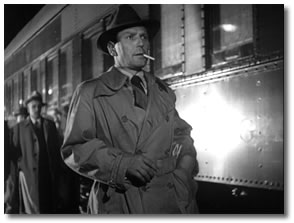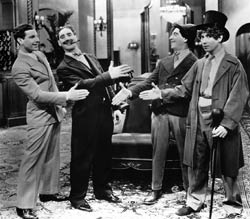 My daughter has decided that we live near a castle. Three days a week I push her and and her twin brother in a stroller to their preschool, about a 15-minute walk from where we live, and each morning as part of her customary trip narration she declares "Castle!" I know better than to say "water tower" or "Toronto Hydro," because she will only shake her head in pity for my ignorance and repeat "Castle!" with rising emphasis until I admit that yes, it is a castle, a beige brick castle with a red-and-white metal tower on top.
My daughter has decided that we live near a castle. Three days a week I push her and and her twin brother in a stroller to their preschool, about a 15-minute walk from where we live, and each morning as part of her customary trip narration she declares "Castle!" I know better than to say "water tower" or "Toronto Hydro," because she will only shake her head in pity for my ignorance and repeat "Castle!" with rising emphasis until I admit that yes, it is a castle, a beige brick castle with a red-and-white metal tower on top. On Friday I saw Spirit of the Beehive (1973), and I was astonished at director Victor Erice's ability to capture the view of a child. An abandoned farmhouse becomes Frankenstein's lair, a midnight walk becomes a means to summon a ghost, a sister's playing possum becomes death itself. There were points in the movie where I sat up in disbelief, jarred by a memory of the way I thought and acted as a child, that memory brought back so vividly it was as though I were a little girl again if only for a minute.
The setting is a remote part of Spain in 1940. Ana (Ana Torrent, about six years old and possessed of eyes that could stop your heart) sees "Frankenstein" via a traveling movie show. Her sister Isabel convinces her that the monster's spirit is still somewhere about. Ana's parents, traumatized and estranged, pursue their own obsessions and are only fitfully present in their children's lives. Spain's Civil War just ended, and throughout the film we sense real monsters barely kept at bay as the girls become more engrossed in their games. It is a strange movie, visionary and almost plotless, crammed with symbols of adult isolation, deception and loneliness. But despite the frequent reminders of the grown-up world, so intensely do you enter the minds of the children that when a bit of magical realism takes shape late in the tale, it feels as logical to you as it does to Ana.
I walked out feeling a bit disoriented, as though I had slipped inside my children's heads and could not alter my view back to adulthood. If you had taken my hand and walked me to school, I would have sworn I saw a castle.






